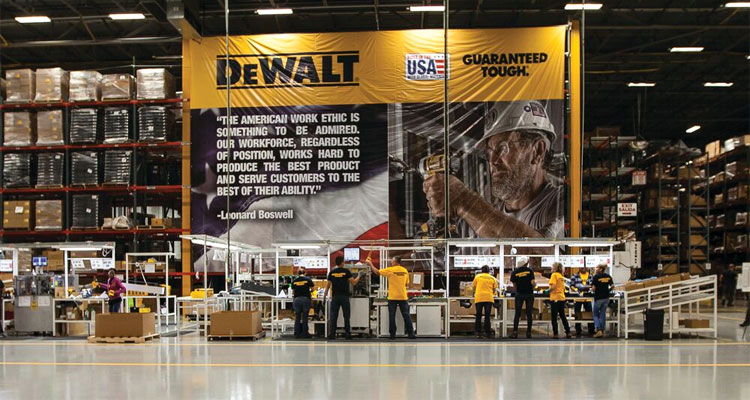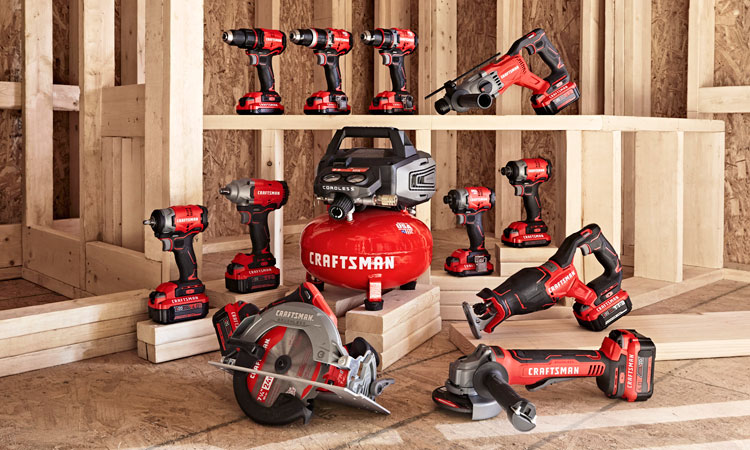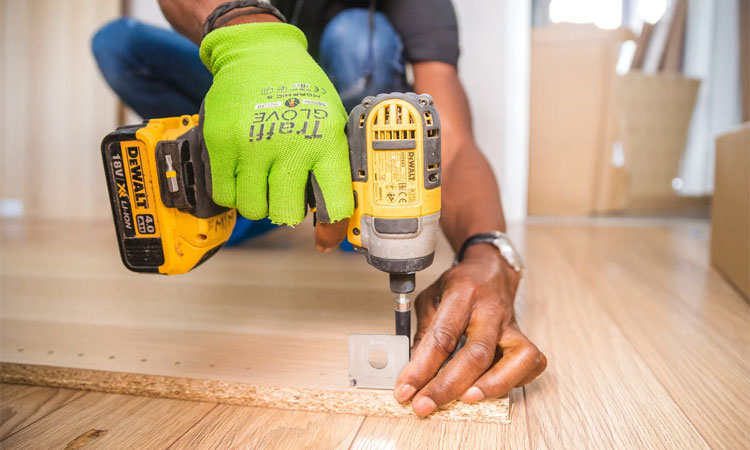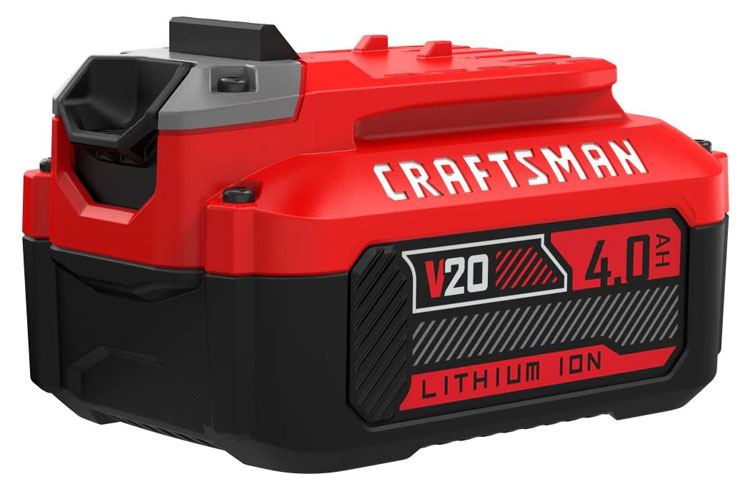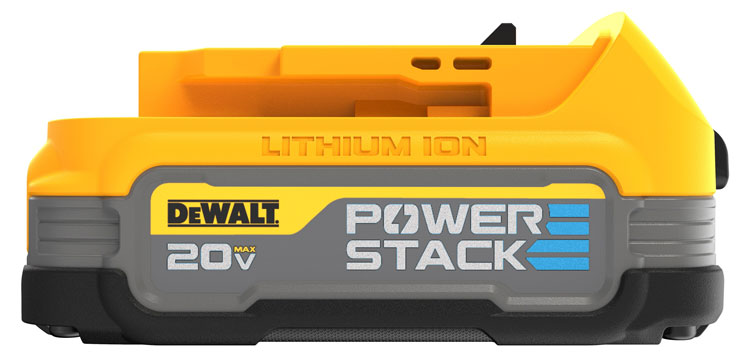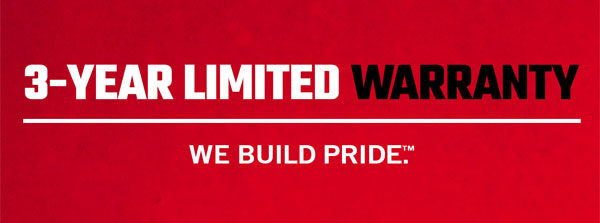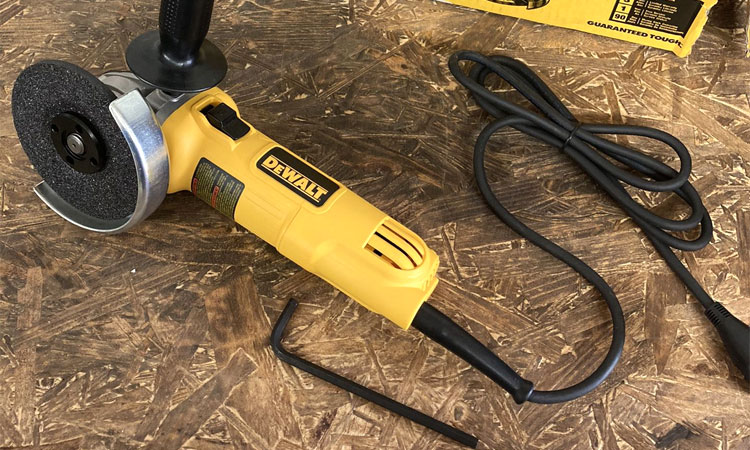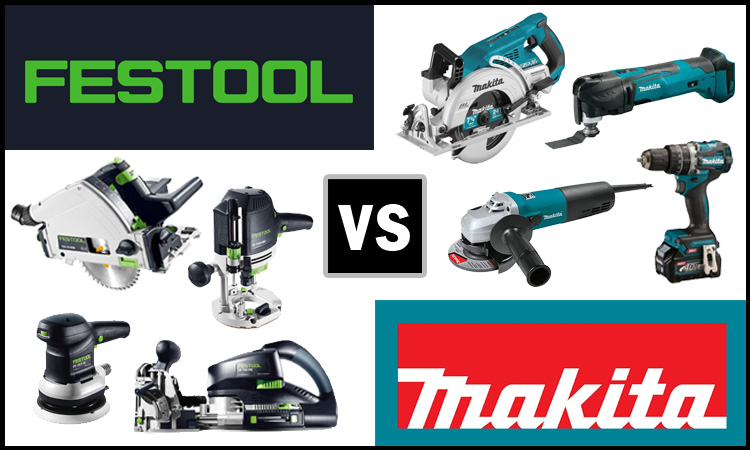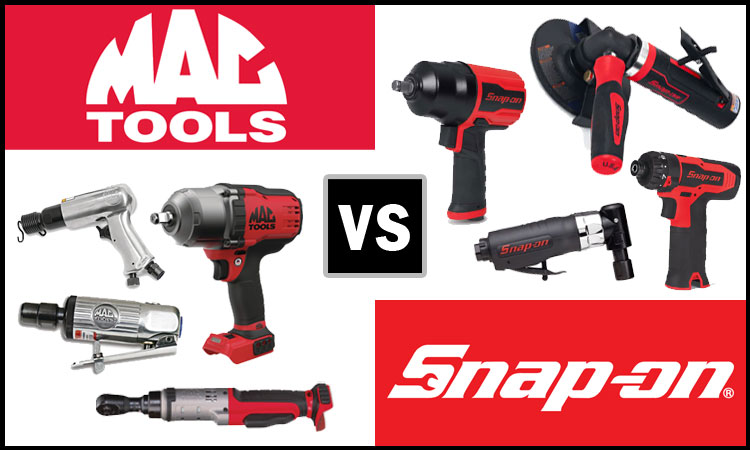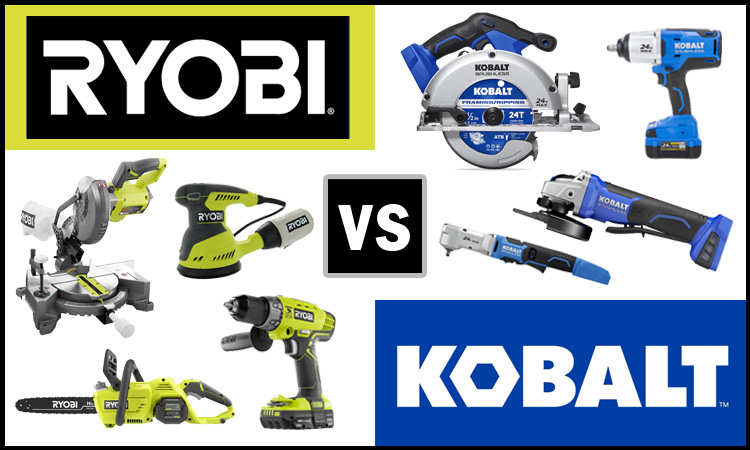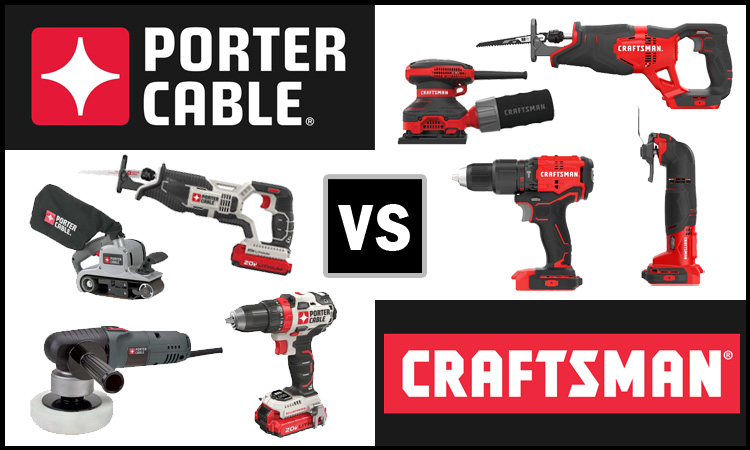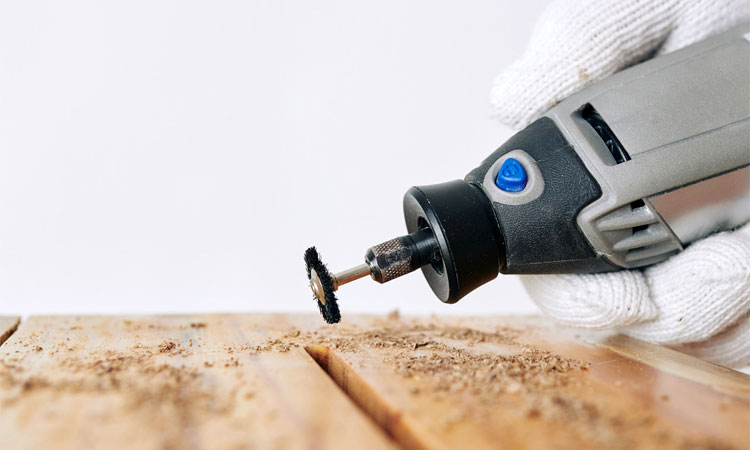Craftsman vs DeWalt (Which is Better?)
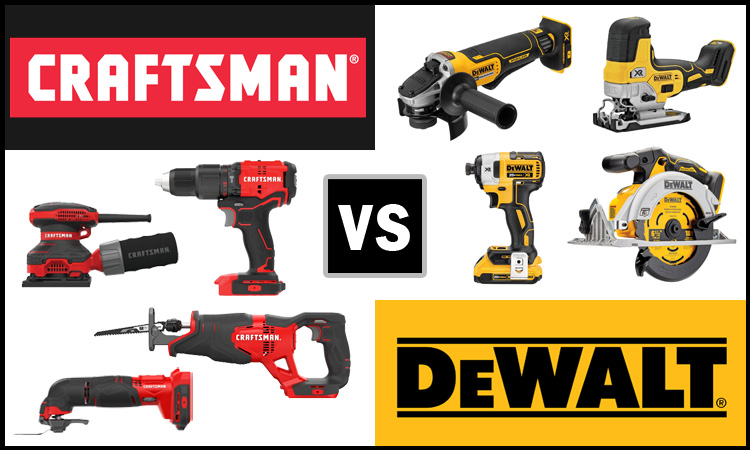
Today’s tool industry is home to a near infinite number of manufacturers, all of which seek to appeal to consumers by any means possible. Nonetheless, certain brands simply stick out above the rest, largely due to their storied histories and spotless reputations.
This is the case with both Craftsman and DeWalt, each of which has served as a staple of the American tool market for approximately 100 years.
While both Craftsman and DeWalt carry a legacy of greatness all their own, many are left to ponder which of these two brands offer the most bang for the buck. The answer to this question can only be found through meticulous research, and thorough comparison. For this reason, we have prepared the following guide.
What follows is a side-by-side comparison of Craftsman and DeWalt, based upon a series of criteria and valuable characteristics. This info will provide you, the consumer, with greater insight into the offerings of each of these titans of the domestic tool industry.
History
Craftsman and DeWalt have both served as cornerstones of the tool industry for many years. Though Craftsman and DeWalt’s origins were established around the same time, the story behind each of these two companies’ rise to success is largely unique.
Read on to learn more about the history of both Craftsman and DeWalt.
About Craftsman Tools
In the early 1920s, Sears gave Tom Dunlap the task of restructuring the hardware department in all Sears retail stores. Dunlap realized that mechanics and DIYers alike, all found great pride in owning their own premium tools and equipment. Tom decided to dispose of the outdated tools that the company carried and to establish Sears’ own line of “in-house” brand hand tools.
In 1927, Sears launched its new line of house brand tools, thus the Craftsman tool line was established. Over the next couple of decades, the Craftsman line of tools continued to grow as first one product after another was introduced to the public. The 1940s saw Craftsman tools playing an increasingly important role in American defense plane construction.
Over the years, Craftsman tools have been produced for Sears by several independent manufacturers and it is usually impossible to track exactly where a tool was produced. Many of the tool manufacturers refrain from putting their own identifying production marks on the tools they produce for different companies. Early Craftsman tools were manufactured by names such as J.H Williams, New Britain, and S&K.
Over the years, the Craftsman tool line has expanded to include almost any tool a tradesman would need, from ratchets, saws, wrenches, pliers, and screwdrivers, to an array of specialty tools. Craftsman’s product catalog now also features a host of power tools manufactured by known companies such as DeWalt, Emerson Electric, and Techtronic Industries.
Currently, Craftsman tools are owned by Stanley Black and Decker. They are no longer sold only at Sears stores. In fact, consumers have a varied choice of places to purchase them such as Ace Hardware, Lowe’s, and even Amazon.
Related: Craftsman vs Kobalt
About DeWalt Tools
The DeWalt tool company was founded in 1922 by Raymond DeWalt, the superintendent of Seabrooks Farms. DeWalt began with the invention of a woodworking machine designed to boost production efficiency. Given its variety of configurations, this machine became well known for its incredible versatility.
The first DeWalt plant was built in Leola, Pennsylvania, in 1924. DeWalt began selling a specialized mortiser and joiner as part of its catalog in addition to its “Wonder Worker” universal woodworking machine.
In the 1940s, DeWalt began to develop at breakneck speed in order to satisfy the demands of the federal government for national defense and wartime machinery.
The company experienced substantial growth during the next decade, first through its purchase by AMF (American Machine Foundry) and then by extending operations into Canada. Buyer demand exploded to the point where a much larger amount of manufacturing space was needed.
DeWalt’s first line of portable electric tools for contractors and professional woodworkers was introduced in 1992. This line has grown to encompass over 200 tools across three different voltage ranges (12V, 14.4V, and 20V) by 2001, including more than 800 accessories.
DeWalt continued to grow in the following years, opening additional manufacturing facilities and further expanding their production capacity.
These days, Black & Decker owns DeWalt and employs around 13,000 people in the United States as well as throughout the world. The firm is adding to its already substantial line of traditional and cordless power tools.
See Also: DeWalt Tools vs Ryobi Tools
Manufacturing
To many consumers, a tool’s country of origin is a highly important factor in a prospective purchase. This is why many consumers wish to know more about the manufacturing processes of their favorite tool company before making a purchasing decision.
Therefore, it is worth considering such details, when comparing DeWalt and Craftsman tools in a side-by-side fashion.
Where Are Craftsman Tools Made?
Until 2010, almost all Craftsman tools were exclusively manufactured in the United States. However, this is not true in current times, for most of Craftsman’s power and hand tools are now produced in China and Taiwan, with some offerings being produced elsewhere.
Craftsman does clearly mark the packages of any tool that is manufactured within the United States. Many older, Craftsman tools that were produced in the US are highly sought after and demand a high price on the used market.
See Also: Craftsman vs Milwaukee Tools
Where Are DeWalt Tools Made?
Headquartered in Towson, Maryland, DeWalt has seven manufacturing plants in the United States. The following cities have DeWalt tool facilities.
- Hampstead, Maryland
- Cheraw, South Carolina
- Shelbyville, Kentucky
- Jackson, Tennessee
- New Britain, Connecticut
- Charlotte, North Carolina
- Greenfield, Indiana
That said, only a portion of DeWalt tools are made in the US. The company also runs manufacturing plants in China, Mexico, Czech Republic, Italy, the UK, Brazil, and China. The vast majority of DeWalt products that are produced in the US will show “Built in the USA with Global Materials” on their labels.
See Also: DeWalt vs Kobalt Tools
Product Line
Even though Craftsman and DeWalt each offer a comprehensive lineup of premium tools, consumers seek out the new and differences in each brand when choosing a company to purchase from.
The following is a condensed look at the Craftsman and DeWalt’s product line.
Craftsman
Craftsman has been a name in the tool business for many years with both their hand and power tools. In recent years, Craftsman has focused primarily on the production of quality portable power tools. This has produced a remarkable new line of V20 brushless RP power tools.
Tools produced in this line feature a 20-volt Lithium-ion battery that is designed to provide the power and longevity to master even the most difficult task at hand.
Craftsman’s V20 line has expanded to include many common tools such as drills, grinders, saws, and impact drivers. However, the V20 lineup also extends into the other areas of consumers’ lives with additions like air compressors, fans, chainsaws, and mowers. Craftsman is actively expanding this lineup on a yearly basis.
Craftsman also carries an extensive line of corded tools that are priced economically for consumers on a budget. These tools range from saws to sanders and many more tools that are perfect for those home improvement projects.
Unlike other brands, Craftsman’s broad line of tools and equipment reaches the needs of all consumers.
DeWalt
The debut of DeWalt’s first set of cordless power tools in the early 90s paved the way for the company’s rise to dominance in the power tool industry. This success was swiftly followed by the introduction of 30 more cordless tools in a short four year period. One of DeWalt’s most notable innovations at that time was its 14.4V line of cordless tools.
Currently, the 20V Max line is DeWalt’s most well-known power tool series. With nearly 200 power tools in the lineup, more are being added all the time. Cordless drills, impact wrenches, grinders, reciprocating saws, and nail guns are among the most notable products in the 20V Max collection.
DeWalt’s 60V Max line consisting of tools such as circular saws, rotary hammers, and air compressors, cater to every professional job site need. These tools go above and beyond the typical 20V products by providing maximum output for heavy-duty applications.
Tradesmen may use DeWalt’s 60V batteries or the flexible 20V/60V FlexVolt battery with this series of power tools to get the job done quickly and efficiently.
In addition to their popular power tools, DeWalt also manufactures a full line of high quality hand tools. On top of that, DeWalt now produces outdoor equipment, storage and workstation solutions, and even protective gear such as knee pads, shoes, and work gloves.
Read Also: DeWalt vs Ridgid Tools
Technology
Innovation and the names Craftsman and DeWalt go hand in hand. Each company has been a main player in the world of continual innovations. These iconic names in the tool industry continue to push the limits each year.
The following are several high points of both Craftsman and DeWalt strides in innovation.
Craftsman
Two-Speed Gearbox
Many of Craftsman’s power tools, especially their drills, now feature unique two-speed gearboxes. This provides consumers with greater control when working in confined spaces, or with delicate materials.
With the use of this technology, one is also better able to prevent binding and the painful wrist torque that often comes as a result.
RP-Brushless Power
Craftsman’s newest line of portable power tools now features RP brushless 20V motors. The “RP” designation stands for “Runtime” and “Performance”. These newest motors are designed to withstand the toughest jobs.
Craftsman states that each tool featuring this technology is capable of outperforming and outlasting all other competition.
V20 Technology
Craftsman has produced the perfect battery for their RP Brushless power tools. These 20-volt power packs carry the V20 name and are designed to provide longevity and extra power for the job at hand.
In fact, Craftsman specifies that their V20 battery packs provide 25-percent greater battery life than any other similar battery pack on the market.
DeWalt
FlexVolt Batteries
The introduction of DeWalt’s FlexVolt line was met with great excitement. These batteries are considered dual voltage and provide enough power for use with both 20V and 60V DeWalt power tools.
The FlexVolt batteries change voltage automatically depending on the tool you’re using. As a result, these batteries are among the most adaptable on the market, allowing users to carry a single type of battery that is compatible with over 200 products.
Tool Connect
DeWalt’s Tool Connect is a unique tool and battery tracking system. This software, which is linked via Bluetooth tags and chips, may be used to easily keep track of equipment on a job site. The app streamlines inventory management and adds security by allowing easy access to tool information from any location.
Jobsite WiFi Access Point
Perfect for any workplace, DeWalt’s Jobsite WiFi offers a simple 4-step installation process, as well as its IP67 dust and water resistance, to make it a great option for any job site.
The access point connects (and reconnects) automatically as it is moved throughout the site and it can withstand a 10-foot drop and temperatures over 120 degrees Fahrenheit.
See Also: DeWalt vs Porter-Cable
Warranty and Service
Power tools are subjected to a wide range of abuses during their lifetime, placing increased importance upon a particular manufacturer’s customer service. More specifically, the warranty offered with any power tool is of immense value, and should not be overlooked at the time of purchase.
The following is a side-by-side comparison of Craftsman and DeWalt’s warranty policies.
Craftsman
Craftsman tools are backed by some of the best warranties on the market today. The company has always been known for its superb customer service. It’s part of what makes Craftsman who and what they are in the world of tools.
Craftsman power tools come backed by a 3-year limited warranty. This coverage protects against defects due to faulty materials or workmanship. Simply return your tool to the original retailer within the first 3 years for repair or replacement.
However, it must be noted that this policy does not cover defects caused by normal wear and tear or misuse.
Craftsman hand tools are covered for life, against any and all defects resulting from regular use. Should warranty repair or replacement be required, simply return the tool to the retailer, no receipt is needed.
Craftsman also carries specific warranties on specific tools in their product lineup.
- Mechanics Tools, full lifetime warranty
- Non-electric Automotive tools, full lifetime warranty
- Garage Door openers, 3-year limited warranty
- Work wear, limited lifetime warranty
- Outdoor Power Tools, 3-year limited warranty
DeWalt
DeWalt provides its customers with a 3-year limited warranty on the majority of its portable power tools. This warranty covers flaws in materials and workmanship for the duration of the tool’s life. DeWalt, however, will not be held liable for any issues caused by regular usage and wear.
In addition to the normal 3-year limited guarantee, DeWalt gives consumers a free one-year service contract. Any malfunctions or worn parts originating from normal use and wear will be repaired during this time without charge to the customer.
On top of that, all DeWalt power tools come with a 90-day Money Back Guarantee. If you’re unhappy with the product for any reason, you may get a refund without question.
Other special warranties available from DeWalt include:
- Lifetime warranty on hand tools
- Lifetime warranty on mechanics tools
- 1-year limited warranty on air compressors
- 30-day money-back guarantee on footwear
Also: DeWalt Tools vs Festool
Craftsman vs DeWalt: And The Winner Is…
Craftsman and DeWalt are both well-respected brands within the tool industry, and have for quite some time. While Craftsman is no longer in the “elite” tier as they were when all their products were made in the USA, they still produce some excellent products.
Knowing this, it is difficult to say that either of these brands could be considered to be “lesser” in the eyes of consumers. However, we must choose only one winner to be crowned “best of the best” in our side-by-side comparison.
In our humble opinion, DeWalt outshines Craftsman on multiple fronts, none of which more are more prominent than when comparing the depth of each brand’s product catalog.
DeWalt’s list of available products is staggering, with most of the company’s newest power tools utilizing fully interchangeable batteries. This makes DeWalt’s tools extremely versatile, affording unparalleled convenience. There’s good reason why their yellow/black tools are so commonly seen on jobsites.
Additionally, DeWalt offers warranty coverage that far exceeds that provided by most power tool manufacturers. Between the company’s limited product warranty, and complimentary product service plan, consumers can rest assured that a purchase from DeWalt is a purchase for life.




